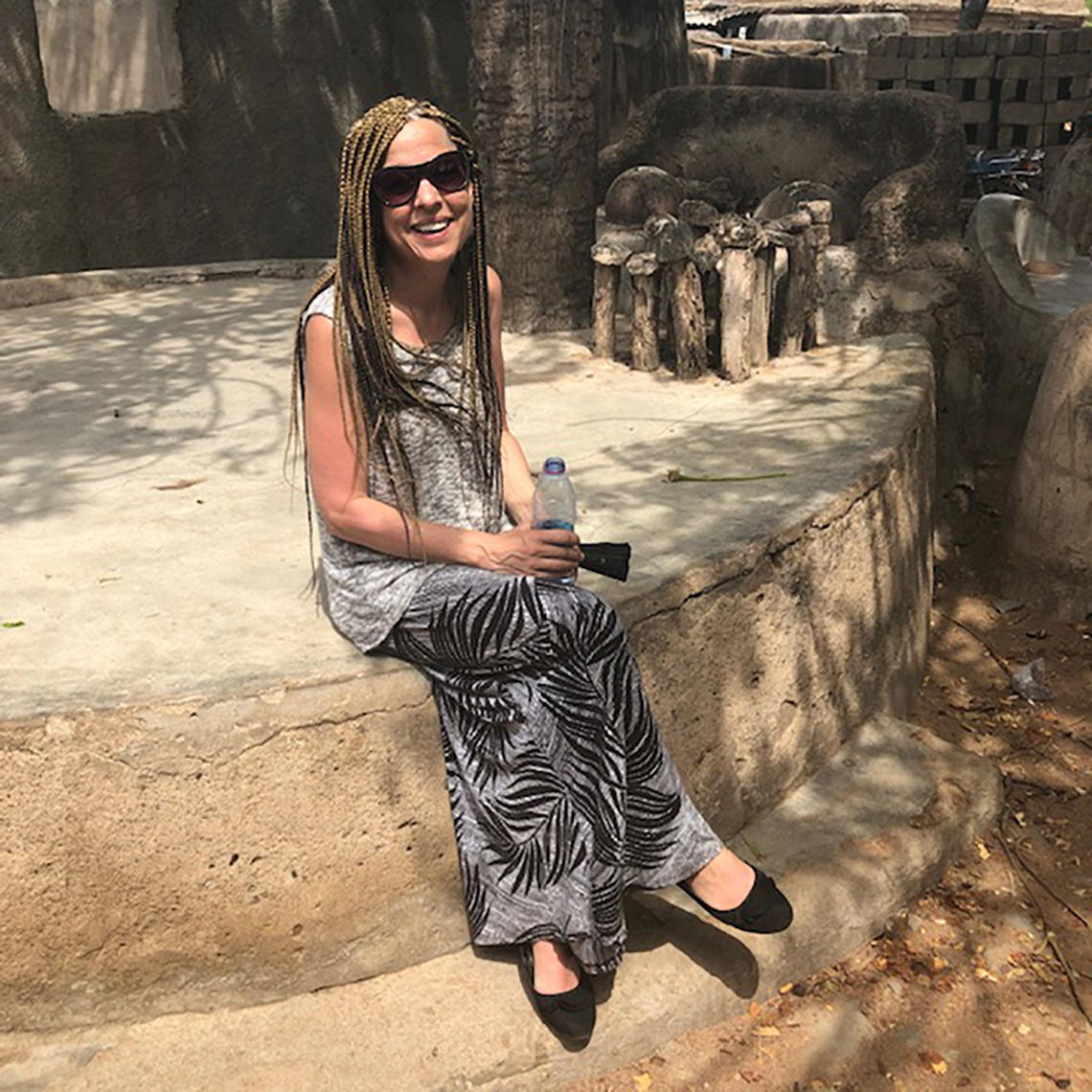Sept. 18, 2019
Field school is about much more than course credit. Just ask student adviser Monika Davidson
Monika Davidson joins Rita Yembilah‘s field school in Ghana.
Courtesy Monika Davidson
As a student adviser with 14 years’ experience, Monika Davidson is a pro at conveying to students what they need to make their degrees come together. But field schools are not classroom and textbook learning. When considering a cultural immersion experience, students come with a different set of questions.
Davidson, an undergraduate adviser in the Department of Anthropology and Archaealogy, advises students about field schools, which see students travelling to Belize, Ghana and Mexico. The one gap in her knowledge was that she had never been there. When Davidson learned of the new Staff Development Grant for International and Cross-Cultural Competencies, she saw an opportunity to fill this void.
“How does a field school apply to their degree; what course requirements does it fulfil? Got it,” says Davidson. “But what are the advantages of a field school for me; is it worth the cost; and will I be able to cope? I couldn’t answer these questions because I was never there. I can now answer with certainty.”
Upon receiving the grant, Davidson travelled to Ghana with Dr. Rita Yembilah‘s field school, Ghana: Development in Situ, in Spring 2019.

Monica Davidson visits the Palace in Tongo Hills along with the field school in Ghana.
Courtesy Monika Davidson
“There are reasonable anxieties about travelling to developing countries. It’s a new culture, you’re away from home and your family, the diet is different, the heat is intense, there are bugs and very interesting toilets. Also, you’re with a group of people you don’t know. It’s culture shock,” says Davidson. “But I know these are all challenges that can be overcome, because I did it. Now I tell them no matter what their fears; relax and give it 24 hours. The feeling is not permanent. Bring granola bars and things from home that are familiar.”
Then, as Davidson herself did, they can get on with what is often a life-changing learning experience.
“Watching the students grasp the concepts of development in a development environment is astounding. They are living the experience of overcoming the barriers. They are building character and showing themselves what they can do. I got to see their passion for the field of development studies grow. They wanted to make a contribution in Ghana. It was motivational,” she says.
The Staff Development Grant for International and Cross-Cultural Competencies was created as a part of UCalgary’s International Strategy.
“While the benefit of international learning experiences for students and academic staff is widely recognized, the need for intercultural capacity in administrative staff is not always front of mind,” says Cheryl Dueck, senior academic director, International. “Sometimes specific knowledge is needed and these grants help acquire it.”
“With our society being so diverse, experiencing and understanding new cultures can only be beneficial,” says Davidson, who works with professors and students from Ghana, “It helps you reflect upon your own culture and makes you think more about why you do certain things. I’ll be forever indebted to UCalgary for this experience.”
Staff Development Grants for International and Cross-Cultural Competencies are open to UCalgary administrative staff or faculty working in an administrative capacity to develop international and cross-cultural competencies (must involve international travel or placement). Check out the grant terms of reference. Grants are valued at up to $5,000 each to match funds from the staff member’s home department.




